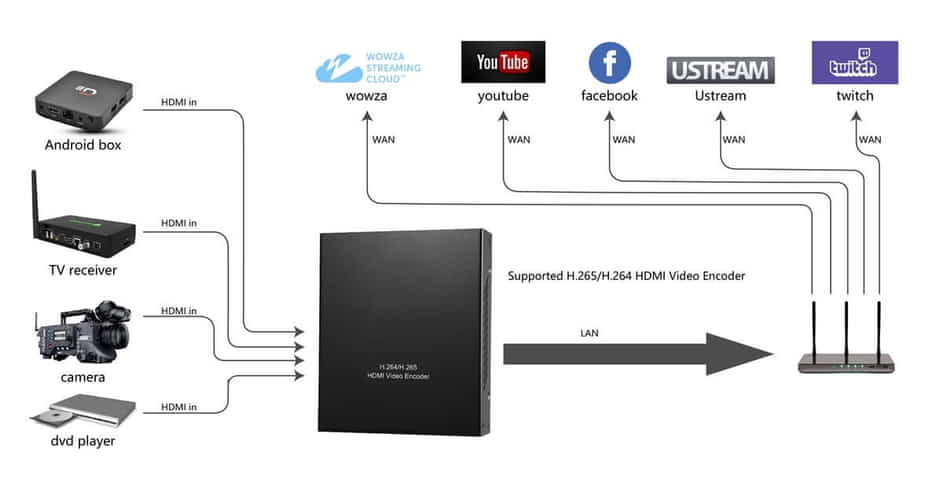VPS Hosting vs Cloud Server :
A virtual private server is a middle ground between a dedicated server and shared hosting. But if you are using shared hosting, and getting errors like “resource limit reached” or “Maximum user connections” etc.
And you are thinking to upgrade your hosting services but you are confused that which hosting service will be suitable for your website, in VPS hosting and Cloud hosting then here is some differences in VPS Hosting vs Cloud Server so that you can easily understand that which one is good.
VPS Hosting (Virtual Private Server):
As you know VPS Hosting means Virtual Private Server. You can understand its definition that “One physical server, divided into several smaller server slices that each act as their own virtual server environment.”
VPS is good old traditional virtualization technology where in each server set of OS is placed by virtualization technology, If there is any problem in the base node or server hardware all the clients hosted in the VPS server will fail.
System:
In a VPS hosting, one dedicated server (suppose a dedicated server with 64 GB RAM and resources) is partitioned into multiple servers. All these partitions are virtualized further and each of them work as a dedicated server, hence called Virtual dedicated server or VDS or VPS.
Pros:
- No file or data access occurs between VPS clients on the shared server. They are kept separate.
- Virtual Private Servers are not scalable whereas cloud servers are highly scalable.
- VPS don’t offer high availability whereas if a physical server fails, cloud servers are migrated to another physical server without experiencing an outage.
- There can be security concerns. If a customer on your shared server does not take security seriously, and gets hacked or gets a virus, then your VPS could be negatively affected.
Cons:
- VPS do not offer high-availability. If physical server fails, all VPSs on that server fail.
- Computing resources are shared between all clients; therefore, RAM, bandwidth and CPU performance can be affected if another VPS on the shared server is demanding a higher load.
- There can be security concerns. If a customer on your shared server does not take security seriously, and gets hacked or gets a virus, then your VPS could be negatively affected.
- Only one operating system can be utilized by each physical server.
- They are not scalable. Storage is based on physical server limitations. Once you meet your max VPS capacity, you have to either buy more space or look into other options. This could take many hours or days of downtime to migrate to a new solution.
- VPS typically less expensive than cloud servers – See Current Pricing
Cloud Hosting ( Cloud Server or Virtual Machine):
You also know that Cloud Server known as VM Virtual Machine, IaaS (Infrastructure as a Service). You can understand its deification that “Cloud servers utilize multiple servers connected together in a cluster which is backed by SAN storage. Customers utilizing a cloud platform will benefit from the multiple servers because they will receive unlimited storage, maximum bandwidth, managed load balancing and no ties to a specific piece of hardware. The basic difference between public and private clouds is in public, the cluster is multi-tenant and a private is a single client.”
In cloud hosting technology, multiple servers are inter-linked to each other so that if there is any down time or hard ware problem, the VMs or client can be migrated to another hardware with minimal down time or no down time.
System:
Cloud hosting, we rent a small portion of a big network of machines connected together. (Talking about public cloud) A giant setup of machines that offer resources are connected together and then they are further rented to clients. You can always scale up your resources as per your requirements and it will be done in a few minutes of clicks.
Pros:
- Scalable – add more server power in a moment’s notice.
- Custom Infrastructure – clients can include custom network architecture, firewalls, load balancing and IP deployment.
- High Availability – if a physical server fails, cloud servers are migrated to another physical server without experiencing an outage.
- Burst able Computing Resources – no concern about lagging RAM or CPU power, even if another cloud customer’s load grows.
- Cloud servers are completely secure since you virtually have your own server. If a client on the shared cloud gets hacked or gets a virus, your cloud server will be completely separated with no risk to your data.
- Computing resources are shared between all clients; the Each customer on the cloud can select their specific operating system.
- Unlimited storage as it is based on SAN storage.
- It is cheaper then VPS Hosting – See Pricing
Cons:
As you can see, the cloud servers are a little light on the con side. And, if you are utilizing a shared cloud, the cost is not significantly more than a VPS and there is much upside.
Conclusion:
Hopefully these points have helped clear up some of the differences between VPS and cloud servers. Both VPS hosting and cloud hosting are beneficial for businesses. It depends on the needs of your website which web hosting do you really need, if you want a single server then go for VPS hosting and if you want complete security for your website then cloud hosting is the best choice.
So now we understand all differences between cloud and VPS hosting.
- Cloud hosting is more scalable and redundant than VPS hosting.
- Unlike cloud hosting, VPS hosting has security concerns because its computing resources are shared by different clients.
- Cloud hosting offers unlimited storage of data but with VPS hosting the storage space is limited
Cloud hosting is highly competitive than VPS hosting. - As cloud hosting is divided into servers, people have less control over many parameters. Thus cloud hosting is quite complex than VPS hosting.
- The up gradation of cloud hosting services is easier than of VPS hosting.
- VPS hosting is less costly than cloud hosting.
Now we can see clear differences between VPS Hosting vs Cloud Server that Cloud Hosting Service is one of the best and one of the secure Hosting service provider than VPS Hosting as data on the cloud is more secure and more effective than VPS Hosting.
So you if you are looking to choose hosting service between VPS Hosting vs Cloud Server then I will prefer to go with Cloud hosting with new age of security.





